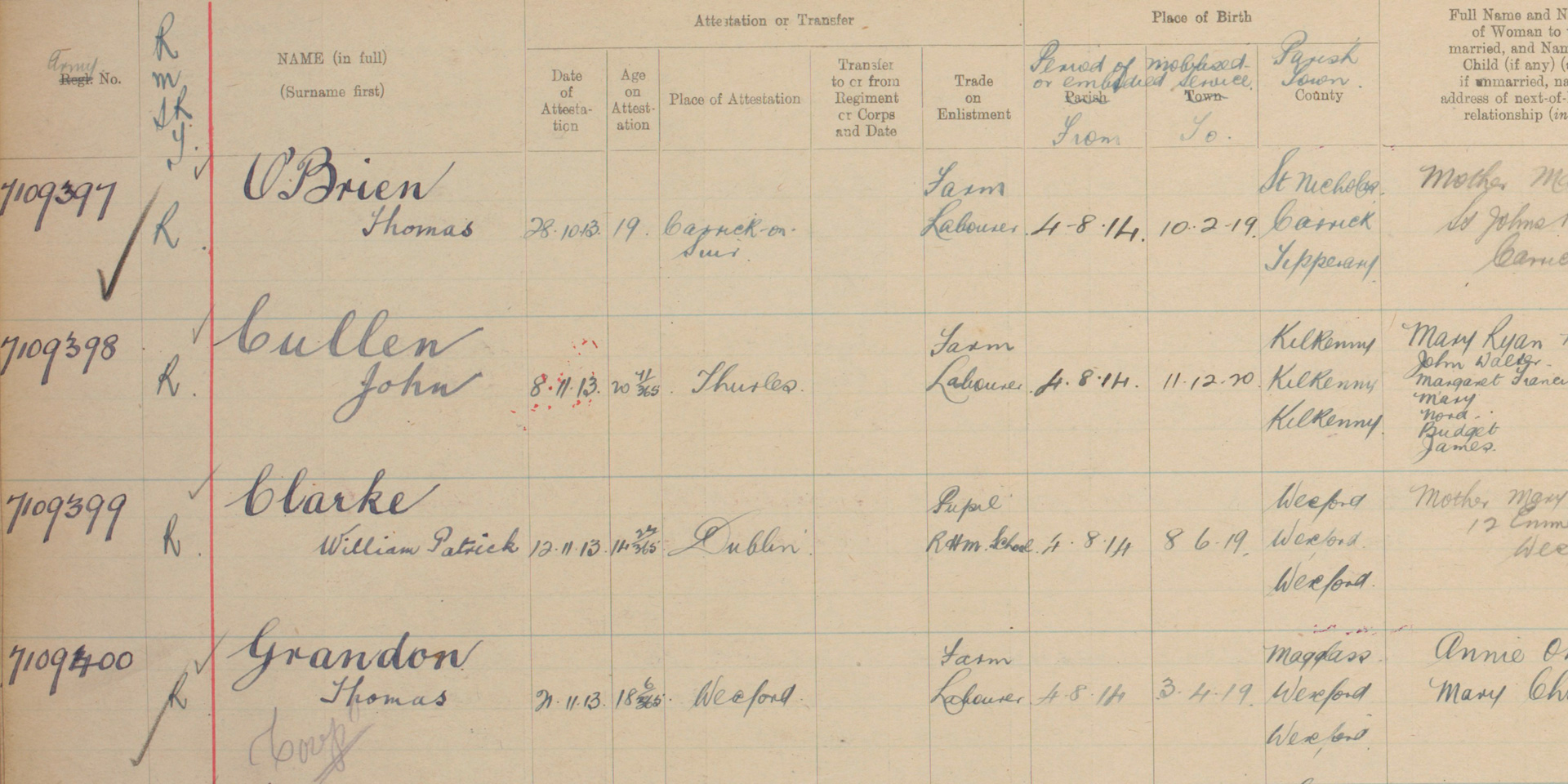Records of regiments disbanded after the Irish War of Independence go online
For the first time, records of nearly 12,000 soldiers from five Irish regiments disbanded after the Irish War of Independence in 1922 have been made available online. The exciting new resource has been launched by the National Army Museum and gives access to the regiments’ enlistment books for the years 1920-22.
Following the creation of the Irish Free State in 1922, the regiments of the British Army that traditionally recruited in southern Ireland were disbanded. These were the Royal Irish Regiment, the Connaught Rangers, the Leinster Regiment, the Royal Munster Fusiliers and the Royal Dublin Fusiliers.
In 2006, the Ministry of Defence transferred these five regiments’ enlistment books for the years 1920-22 to the National Army Museum’s collection.
The records, digitised with the assistance of funding from the Heritage Lottery Fund, can be accessed for free and searched electronically by unit, place of birth, place of documentation and year of documentation.
What happened to soldiers after their discharge is often revealed. Their characters in many cases are described as 'exemplary', while a few are described as 'very bad' and 99 of them are discharged to serve prison sentences.
The records also show the details of James Daly of the Connaught Rangers, the last soldier to be shot for mutiny by the British Army. In June 1920, Daly led a company of the Connaught Rangers stationed in Jalandhar (Punjab India) in a protest against British excesses in Ireland during the War of Independence. The authorities suppressed the mutiny and James Daly was executed by firing squad on 2 November 1920.
The enlistment books also record soldiers’ service in earlier conflicts, such as the First World War and the Boer War. Alastair Massie, Head of Research & Academic Access at the National Army Museum, said:
'When you consider that over half of First World War service records were destroyed in the Blitz, these enlistment books take on even more significance. They form part of a vital record of our history and we’re pleased to be making them available online where everyone can access them.'
The original enlistment books will be accessible for research when the National Army Museum reopens in Chelsea in March 2017.
Notes for editors
For more information, please contact the National Army Museum press office at pr@nam.ac.uk or 020 7881 2433.
National Army Museum
The National Army Museum is the leading authority on the history of the British Army. Founded in 1960 by Royal Charter and established for the purpose of collecting, preserving and exhibiting objects and records relating to the Land Forces of the British Crown it is a museum that moves, inspires, challenges, educates and entertains. The Museum tells the story of the British Army, the personal experiences of the soldiers who have served and connects the British public and its Army demonstrating how the role of the Army and its actions are still relevant today.
Heritage Lottery Fund
Using money raised through the National Lottery, the Heritage Lottery Fund (HLF) aims to make a lasting difference for heritage, people and communities across the UK and help build a resilient heritage economy. HLF has supported 36,000 projects with £6bn across the UK.
For more information, please contact Katie Owen, HLF press office, on tel: (020) 7591 6036 out of hours mobile: 07973 613820.


